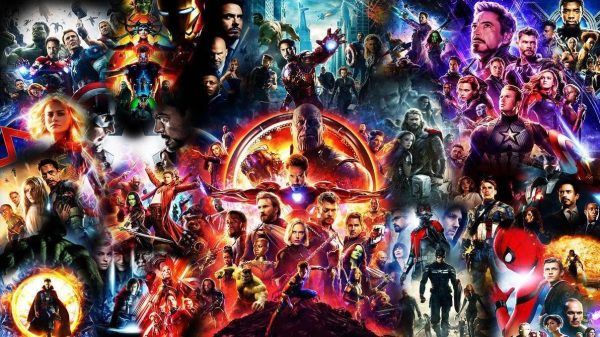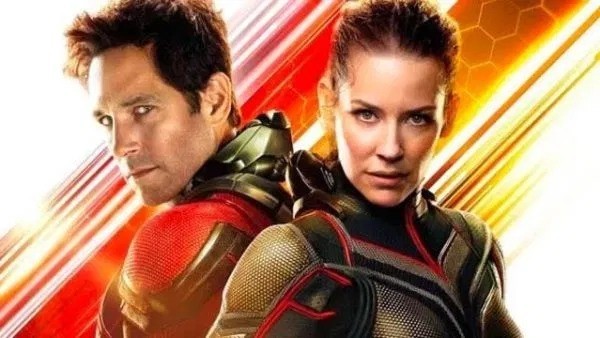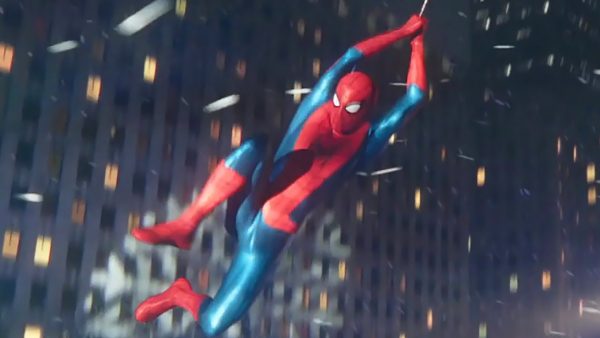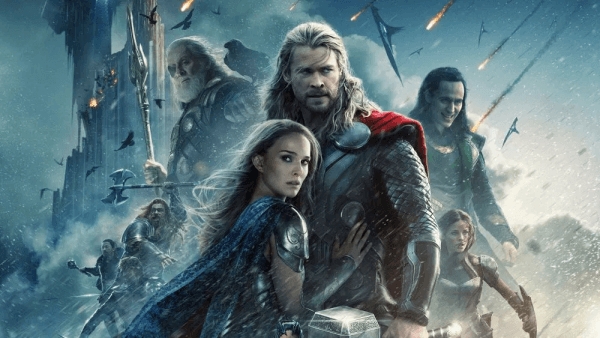Harri Knight-Davis ranks the MCU by level of director influence…
The Marvel Cinematic Universe has become a gigantic phenomenon. With its 29th film now in cinemas and seventh Disney+ show fast approaching, it can be easy to roll up to the next MCU instalment with the expectation of action-packed, comedy-filled bonanzas.
However, behind every Marvel offering there is a filmmaker attempting to wrangle in their own unique directorial spin, in an effort to craft their film with enough authenticity to stand out from the rest of the pack of heavily-produced MCU outings.
This following list will explore the Marvel Cinematic Universe based on how much directorial influence each director had over their individual film(s), ranking from least influence to most…
29. The Incredible Hulk
Louis Leterrier helmed the MCU’s second outing which was always going to be tricky to follow up Iron Man, but Leterrier didn’t do himself any favours by putting very little personality into his solo MCU film. The journeyman director is competent when directing action sequences but the poor VFX and the lack of personality instilled into the second MCU film leaves it as the entry with the least directorial influence with Leterrier leaving no unique fingerprints on the movie.
28. Captain Marvel
Captain Marvel is sadly akin to The Incredible Hulk in terms of directorial influence, despite being the superior film. The Brie Larson headed and first female led superhero film in the MCU suffers from Anna Boden and Ryan Fleck’s lacklustre direction and dull interpretation of Carol Danvers. Despite the duo’s atypical and off-kilter previous directing efforts they fail to imbue their MCU film with any of the same charisma that inhabits their other work.
27. Captain America: The First Avenger
Joe Johnston spearheaded Captain America’s first MCU appearance, and was a good fit. Johnston’s prior experience directing a comic book film, The Rocketeer, positioned him well for making both a solid superhero film and World War II film. Despite this, Joe Bloggs could have directed Chris Evans’ initiation and crowds would be none the wiser.
26. Black Widow
Again another female-led MCU film fails to have much of a directorial stamp with Scarlett Johansson’s Phase Four-launching solo movie. Stylistically Cate Shortland’s film doesn’t offer anything revelatory, with the finale again over-relying on CGI. However, there is a suggestion with the family dynamic that is the film’s throughline that Shortland has cleverly deployed her directorial stamp, but still Black Widow lacks any singularity.
25-24. Ant-Man and Ant-Man and the Wasp
This one is a peculiar one as Edgar Wright was slated to direct the first Ant-Man so it can be tricky to single out where the film’s creative ingenuity originates – Wright or the film’s actual director Peyton Reed? In spite of this confusion there is genuine creativity in both Ant-Man films that can be attributed to Reed and a comedic sensibility that is a throughline through a lot of his oeuvre.
23-20. Captain America: The Winter Soldier, Captain America: Civil War, Avengers: Infinity War, Avengers: Endgame
The Russo brothers’ four MCU films all vary in terms of level of directorial influence, with The Winter Soldier having the most. The Russos MCU debut was a genuine breath of fresh air, introducing a more kinetic action aesthetic and a modern update of the 70’s paranoia thriller. However, their more recent MCU input has been restricted to mega-budgeted team-up films which prohibits any real directorial influence when the main focus is how to deliver the plot and spectacle in the most efficient and grandiose way.
19. Doctor Strange
Scott Derrickson’s only MCU outing to date was the psychedelic 2016 Benedict Cumberbatch starrer. Derrickson does imbue the film with awe-inspiring visuals, but these visuals are heavily inspired by the original source material, rather than his own invention. This is further emphasised where Spider-Man director Jon Watts employed similar visuals in his trilogy. Derrickson was unable truly to suffuse his horror beginnings into the MCU, which has been said to be part of the reason for the creative differences leading tohis departure for Doctor Strange in the Multiverse of Madness.
18-16 The Spider-Man Trilogy
Jon Watts, after his buzzy indie film Cop Car, was swooped up by Kevin Feige and company to direct the teen/coming-of-age film Spider-Man: Homecoming, which felt fresh and was a welcome departure from previous versions of the web-slinging hero. This charming personality Watts embedded into Homecoming was slightly lost in the next two instalments. Watts has a similar problem with Spider-Man: Far from Home and Spider-Man: No Way Home as the Russos had with their Avengers films; they became more about serving the overall franchise than making their own individual films with their own unique stamps.
15. Thor
Thor’s first venture into the MCU is slightly underwhelming from today’s point-of-view, in lieu of what this mini-franchise has gone on to achieve. Kenneth Branagh tries to energise the film with Dutch angle camera shots and fish out of water antics, but he is never able to infuse the film with his operatic tendencies, as shown in his literary adaptations or the heighted verisimilitude evidenced in his Oscar winning Belfast.
14-13. Iron Man, Iron Man 2
No one disputes the quality of the seminal first entry into the MCU, however unique stylistic or thematic motifs aren’t either of Jon Favreau’s greatest assets on the first two Iron Man movies. By this logic the films place middlingly on this list, however Favreau does bring some of his lingering preoccupations that have featured in his previous features, such as continuing his depiction of arrogant womanisers imbued with pathos from his classic 90’s flick Swingers.
12. Shang Chi and the Legend of the Ten Rings
For the MCU’s Asian-American superhero, Asian-American filmmaker Destin Daniel Cretton provided the authenticity needed to fully realise this story. The upcoming Avengers: The Kang Dynasty director brought his tender relationship drama nous to blend with some new mystical effects that make this blockbuster feel like a genuine Asian-American story. Along with some martial arts inspired action scenes, Cretton left his directorial stamp on the MCU.
11. Black Panther
Black Panther director Ryan Coogler is a tricky filmmaker to gauge as he almost seems to meld into the project that he is directing. The same occurred in Creed, his Rocky legacy film, and his debut Fruitvale Station, where he gives himself over to the film to tell the truest story he can tell. These stories are all black stories, tales of black people and their journeys, so in essence, despite not being able to notice visually that it is a Ryan Coogler film, it is at its very core. No one but Coogler could have made the MCU’s first black-led superhero movie.
10-9. The Avengers and Avengers: Age of Ultron
The less said about Joss Whedon’s conduct and behaviour the better really, however his two Avengers hits were the first to actually visually convey a comic book on the big screen in the MCU. Whedon manages to portray the iconography of Marvel comics seamlessly into the plot without alienating audiences. This by itself is enough directorial influence, but Whedon also brought a quippy and clever sense of humour to the films which continued in the MCU well past Whedon’s departure.
8. Doctor Strange in the Multiverse of Madness
After horror director Scott Derrickson’s departure from the Doctor Strange sequel, Kevin Feige brought in a director steeped even further in the horror genre, Sam Raimi. The weakest element of Raimi’s film is that there isn’t more of his madcap, zany horror to enjoy amongst all the films franchise plot threading. Although Doctor Strange’s second MCU film may not be uncensored Raimi there is enough Raimi goodness that it is undoubtedly a Raimi joint and that is never something not to appreciate.
7. Eternals
Chloe Zhao’s use of non-actors, improvisation and on location filming is almost the antithesis of what the MCU had become before she signed on to direct this departure from the Avengers phase of the MCU. And a departure is what the Eternals turned out to be; more cosmic and often ponderous, Eternals dwells on the cosmos’ big questions, resulting in critical and audience dismissal. The 26th MCU film was cruelly rejected, but although Zhao didn’t have complete creative control she injects elegance, and at times flair into a welcome departure from the MCU formula.
6. Thor: The Dark World
It may be a surprise to see the second Thor flick this high on the list but, disregarding its critical consensus, The Dark World shows a genuine aesthetic shift from director Alan Taylor. The 2013 film came soon after Taylor’s long stint as a regular Game of Thrones director, which is significant as The Dark World could almost work as a lost episode of Game of Thrones, if the show had more magical hammers. Taylor, with his Game of Thrones cinematographer Kramer Morgenthau, is at the crux of this change, resulting in a film that Taylor had total control, at least aesthetically.
5. Iron Man 3
Shane Black brought all of his interests and eccentricities to his MCU offering, but this time with a $200 million budget. Iron Man 3 reunited Black with Kiss Kiss Bang Bang star Robert Downey Jr. and rekindled the darkly comedic energy of their previous collaboration. Iron Man 3 is a Shane Black film through and through – it has a buddy cop energy, a deep seriousness to it (with Tony Stark struggling with post traumatic stress), silly twists (The Mandarin reveal) and what Black film would be complete without some Christmas shenanigans?
4-3. Guardians of the Galaxy and Guardians of the Galaxy Vol. 2
With the two, soon to be three, Guardians of the Galaxy films, James Gunn reinvented what a Marvel movie could be. Stacked with retro needle drops, a weird conglomerate of characters and a light sense of humour, Gunn made two comedies that fully embraced a silliness that then give licence to all future MCU films to embrace as well. The Guardians films are unmistakably James Gunn movies, and no one but Gunn could have made them as unique as they are.
2-1. Thor: Ragnorak and Thor: Love and Thunder
Taking top spot is Taika Waititi thanks to his two Thor outings, Thor: Ragnarok and Thor: Love and Thunder. Waititi injects a level of directorial influence that is paramount compared to his Marvel contemporaries. It’s less about his writing and directing style being so distinguishable than it is that his vision is basically unfettered. Whereas other Marvel directors have had their own individual style, many of their trademarks have got lost within the machinery of the MCU. However, Waititi’s directorial influence was clear in Ragnarok and with his creative freedom extended even further for Love and Thunder, Waititi has secured his place has the director with the most influence in the MCU to date.
What do you make of these rankings? Be sure to let us know on our social channels @FlickeringMyth…
Harri Knight-Davis































